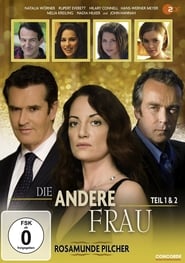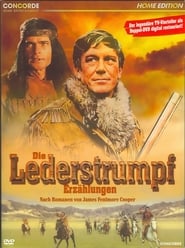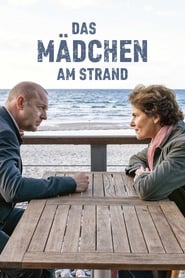Zdf TV Series - Page 43
-
Four and a Half Friends
2015
star 7Charly and his friends love solving mysteries while facing the challenges of growing up. This unlikely group of junior detectives – and their dog – will stop at nothing to find and solve cases they uncover in and around their hometown. And between the excitement, action and laughs, they'll find out a bit about themselves and each other along the way. They don't have superpowers, they aren't geniuses and they don't even look like TV stars, but these normal, unexceptional kids and their funny-looking dog achieve amazing things when they get together as the Charly & Co. Detective Agency. -
Die Nordlichter
1988
Die Nordlichter
1988
-
Rosamunde Pilcher: The Other Wife
2012
star 6Rebecca Kendall has it all: a stunning house, two wonderful daughters and a handsome, loving husband. When Richard dies in a plane crash, Rebecca slowly learns the full extent of her husband’s lies and deceit. -
So ein Zoff!
1987
So ein Zoff!
1987
-
Die Frau im Meer
2023
star 6.6After a missed call and a disturbing voicemail from his former colleague Hella Christensen, investigator Simon Kessler sets off for Nordholm. The commissioner is aware that something bad must have happened. When Hella's sailing boat is recovered at sea, traces of her blood and her cell phone are found on it, but there is no trace of the former commissioner herself. A SOKO, headed by the new police commissioner Lena Jansen, takes over the investigation. The investigative team not only has to solve Hella's disappearance, but also the death of 15-year-old Viviane, who was found in the woods by her friend Charlotte Broder and probably died of a drug overdose. Kessler realizes how little he knew about the life of his former colleague. After years, Hella's sister Rieke Lehwald suddenly appears with her husband Paul. Do the two have something to do with Hella's disappearance? Is it about an inheritance or a relationship act? -
Mission: Eureka
1989
Mission: Eureka
1989
-
Streß in Straßburg
1990
Streß in Straßburg
1990
-
Oma ist noch besser
1965
Oma ist noch besser
1965
-
Das Ferienschiff
1968
Das Ferienschiff
1968
-
The Leatherstocking Tales
1969
star 6.8German miniseries based upon the novel, The Last of the Mohicans. -
Polonius Fischer
2008
Polonius Fischer
2008
-
Alles was Recht ist
1986
Alles was Recht ist
1986






